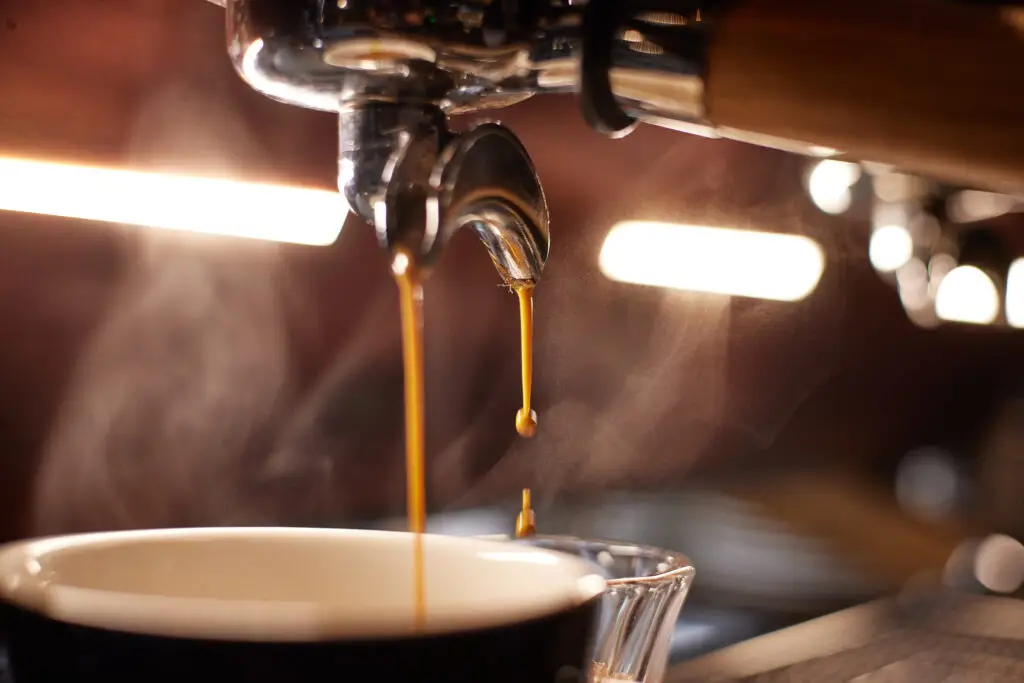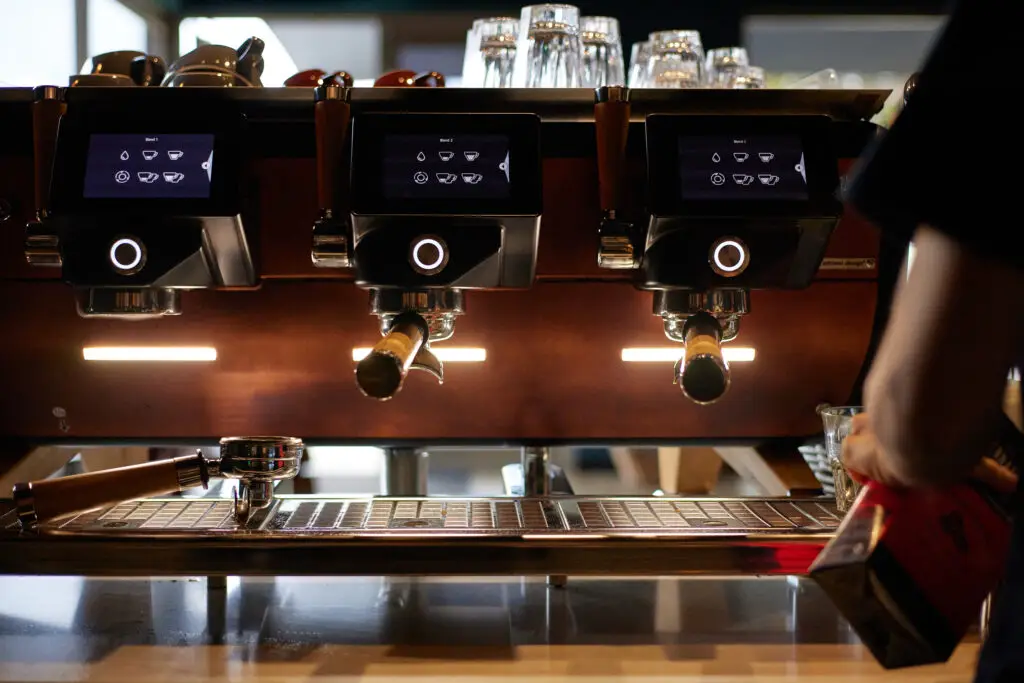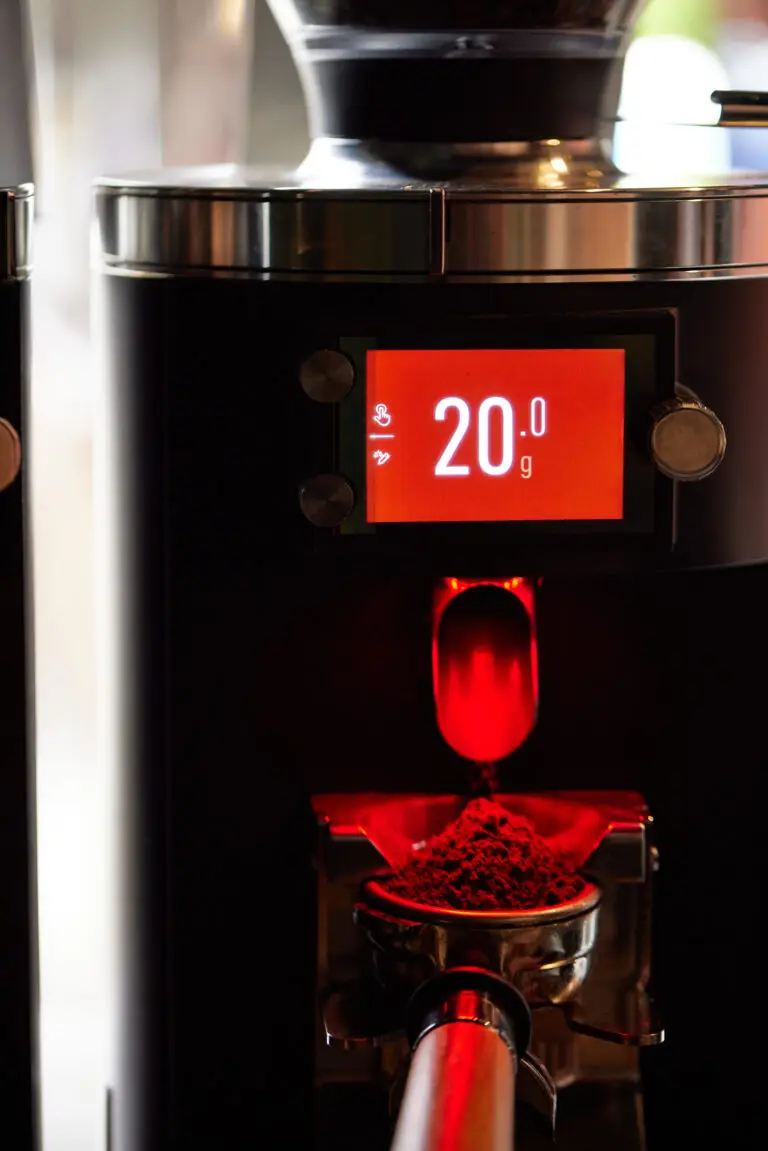So why is your coffee bitter?
There is nothing worse than the disappointment of a bitter cup of coffee.
Coffee has a natural bitterness due to the caffeine content, but this only accounts for about 10-15% of the bitterness. A low level of bitterness actually helps tame the acidity in your coffee. As specialty coffee roasters, we recognise that overpowering bitterness and unbalanced coffee is disappointing to the tastebuds.
In Perth, there’s coffee and then there’s coffee. The locals know where to find the best brews: those little spaces where the beans are roasted fresh, where the milk is sourced from West Australian cows, and where the baristas see it as their personal mission to improve your day. Coffee enthusiasts will tell you the bitter taste left in your mouth is often a result of one or maybe even a combination of three things.
1. Over extraction & brew ratio
When we brew coffee, the flavour hinges on the extraction of solids from the coffee itself. The total dissolvable solids, along with the evenness of extraction determines just how good your espresso tastes.
It’s all about getting the balance between the amount of ground coffee and the amount of water. The espresso ratio we recommend is 1:2 coffee water. Read more on this here.

Not enough water = sour & under-extracted coffee. Too much water = bitter & over extracted coffee.
2.Volumetrics & coffee machine programming
Checking the volumetrics on the coffee machine is part of our daily set up. Volumetric programming ensures our coffee machine is dispensing the correct amount of water for the dose we are using. We recommend that baristas weigh their yield of espresso to ensure consistency. As always, weighing your dose is a crucial step in maintaining your brew ratio and making the best coffee.
Grind Size
Just as brew ratio affects espresso extraction, the grind size of our coffee also plays a huge part in the overall taste of the coffee. Using a grind setting that is too fine or too coarse will significantly alter the flavour of your espresso.
Espresso that pours too fast results in under extraction. Espresso that pours slower becomes stronger in flavour as the coffee solids have more time to dissolve – but only up to a point. If the shot pours too slowly because of the grind being too fine, the espresso will taste bitter. You need to make your coffee grinds coarser so that the water is not so restricted. Espresso should pour between 25–35 seconds, with the best results usually found between 27–33 seconds.

3.Dirty machine and Equipment
This is a no brainer! If the oils are not removed through regular cleaning of your coffee machine, then they will go rancid.
Dirty equipment = bad tasting coffee
Metallic, bitter or astringent flavours in coffee are commonly blamed on the barista or the coffee beans. In actual fact, they are often caused by dirty equipment.
We often hear that a machine with low usage does not need to be cleaned with the same frequency or care that a high volume machine does. This is simply not true. An inactive coffee machine will build up oil just as quickly as a frequently used coffee machine. This is because of the increased idling time; with no water to pass through the various parts, oil is allowed to build up quickly.
If your net showers and group head assembly become blocked with coffee oils, the water flow is restricted. This leads to channeling and uneven extraction. Not only does this cause bitter tasting coffee, it puts stress on vital parts of the coffee machine (like the solenoid and the pump). This causes unnecessary and avoidable wear and tear.
Back flushing your coffee machine
We recommend that you backflush your coffee machine with plain water as often as possible throughout the day. At the end of the day, backflush each group head with specialised coffee machine cleaner.
Dirty portafilters and baskets can also cause coffee to taste ashy and bitter if not cleaned properly. You should regularly clean these parts during service. Give them a good soak in hot soapy water at the end of the day, before scrubbing, rinsing and putting back into the machine.

Make sure you check your
Grinder
Dosing grinders need to be properly cleaned from any excess coffee grinds. Investing in a good grinder can be key to extraction. Adjust your grind to suit the roast of the coffee.
Coffee beans
Make sure your coffee is fresh 1-2 weeks after roasting is recommended and don’t leave your coffee sit in the hopper overnight. Return it to an airtight container of a sealed bag. Have you tried different roast profiles? Perhaps you just need to try a lighter roasted coffee.
Water
How good is the quality of your water? This will impact flavour and so make sure you are changing your water filters regularly or using a filtered water. Check the temperature of your water is not too hot. The optimum is 92-96 degrees.
How can I make my coffee stronger but not bitter?
Life’s too short for bitter coffee. Many enjoy a strong flavored coffee yet, often experience an unpleasant bitter flavor. There are two reasons for this. Firstly, the beans you’re using. Secondly, the roast profile of the coffee beans.
Make sure every coffee you drink is free from bitterness by using specialty coffee beans. Specialty coffee only uses Arabica coffee beans, which offer superior quality. You want to stay clear from Robusta beans which are bitter, lower in quality and are often used in instant coffees. As a specialty coffee roaster, we are strict on high quality and only select delicious Arabica beans..
In addition, you want to keep an eye on what kind of roast profile you’re selecting. If you enjoy your coffee beans strong, you want to select a darker roast. For example, our Karvan Blend 4 is a medium – dark roast that is designed to cut through milk and deliver that smooth and bold flavour. Perfect for those who enjoy a strong coffee with no bitterness. However, be careful with selecting dark roast profiles as some roasters can take it a little too far. If your beans are roasted too dark, it can strip away the flavour experience and make your coffee taste like its burnt! Choosing specialty coffee roasters is usually a safe option as they will take pride in the premium green beans they source. When in doubt, ask the roaster! They’ll be able to answer all questions you have.
If you would like more information regarding any of the above issues, check out our barista training classes. We cover detailed coffee preparation and how to implement an espresso recipe. You will be making some of Perth’s best coffee in no time!



